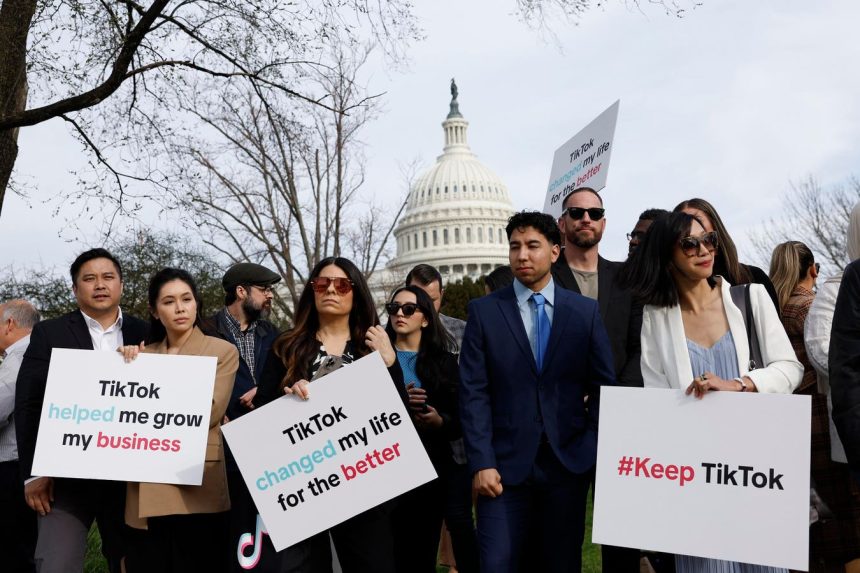The impending ban on TikTok in the United States, stemming from national security concerns linked to its Chinese ownership, has created a competitive landscape ripe for exploitation by rival social media platforms. While the Supreme Court’s recent decision not to block the ban paves the way for its implementation, the ultimate fate of TikTok in the U.S. remains uncertain, contingent on the actions of the incoming presidential administration. This uncertainty fuels speculation about which platforms stand to gain the most from TikTok’s potential absence, with industry experts pointing towards established giants like Meta (Facebook, Instagram, Threads) and Alphabet (YouTube) as primary beneficiaries of the redirected ad revenue, potentially capturing billions of dollars.
However, replicating TikTok’s unique appeal and user engagement is a significant challenge. While competitors have long sought to attract TikTok users, the platform’s distinct functionality and algorithm-driven content delivery have proven difficult to emulate. This inherent difference presents a hurdle for rivals seeking to seamlessly absorb TikTok’s massive user base, even if the ban comes into full effect. The complexity of the situation is further compounded by the possibility of a presidential reprieve, which could temporarily stall the ban and provide TikTok with an opportunity to negotiate a sale of its U.S. operations to an American company.
Even with the impending ban, TikTok’s future remains uncertain. While the law prohibits American companies from doing business with TikTok, the Biden administration has indicated it will not enforce the ban in its final days, leaving the decision to the incoming Trump administration. This opens up the possibility of a reprieve or a negotiated sale to a U.S. company, keeping TikTok alive in America. This uncertainty adds a layer of complexity to the competitive landscape, making it difficult to predict which platform will definitively emerge as the “winner” in this scenario.
Amidst the uncertainty, various contenders are positioning themselves to capitalize on TikTok’s potential downfall. Snap, the parent company of Snapchat, stands out as a potential dark horse in this race. Despite being significantly smaller than Meta, Snap’s focus on a younger demographic and its recent app redesign, aimed at mimicking TikTok’s short-form video format, positions it to attract a significant portion of TikTok’s user base. Even a relatively small influx of TikTok users could translate into substantial revenue growth for Snap, potentially outpacing the relative gains of larger competitors like Meta.
Beyond the established social media giants and Snap, other platforms are also vying for a share of the displaced TikTok audience. Platforms like Pinterest and Reddit, with their emphasis on social search and targeted advertising, offer alternative avenues for reaching users engaged in specific interests and communities. Additionally, Chinese apps like Xiaohongshu (RedNote), which mirror TikTok’s short-form video format, have witnessed a surge in downloads, potentially attracting users seeking a similar experience. However, the long-term viability of these alternatives, particularly those based in China, remains uncertain due to the same national security concerns that led to TikTok’s ban.
The overarching question remains: where will TikTok’s vast and highly engaged user base migrate? While platforms like YouTube Shorts, Instagram Reels, and Snap’s redesigned app aim to fill the void, capturing the essence of TikTok’s unique algorithm and community dynamics presents a formidable challenge. The fragmentation of the user base across multiple platforms is likely, with each attracting a segment based on specific preferences and demographics. Ultimately, the fate of TikTok and the subsequent reshuffling of the social media landscape will depend on a complex interplay of political decisions, corporate strategies, and evolving user preferences. The ban, while seemingly imminent, has not effectively addressed the broader concerns surrounding data privacy and security on social media platforms, regardless of their country of origin, leaving the door open for future similar confrontations.



